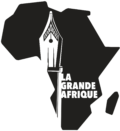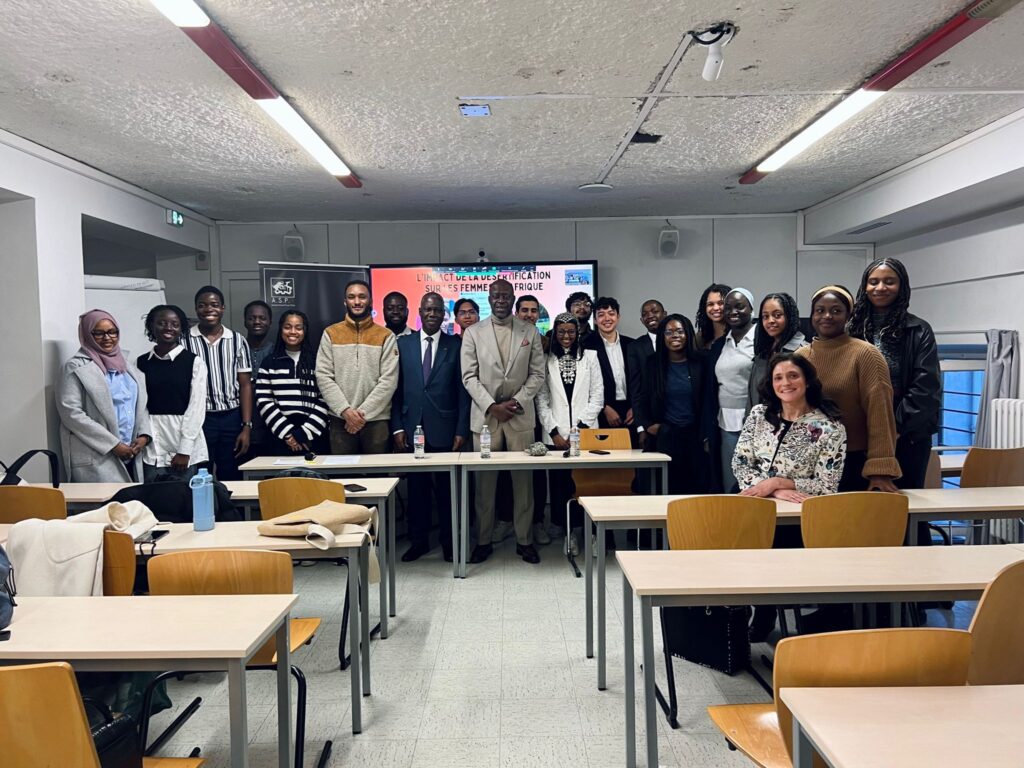As part of ASPA’s Africa Week at Sciences Po Paris, Merem Tahar and Alain Richard Donwahi led a conference on the impact of desertification on women in Africa. The former is an environmental activist for the indigenous Toubou community (Chad) and a private law student at the University of Reims Champagne-Ardenne. At the age of 23, she is already very active in the field and involved in discussions at COP 28 (Dubai). As for Mr Donwahi, he is the former Minister of Water and Forests of Côte d’Ivoire, and the current president of COP15 on desertification and drought, which is scheduled to take place in Abidjan. This article summarizes the fascinating exchanges that emerged from this event.
What is desertification?
First and foremost, it’s important to clarify what we mean by desertification. For Alain Richard Donwahi, desertification is not simply a phenomenon of desert expansion. It is also, and above all, land degradation, implying a loss of biodiversity. In fact, desertification has a particularly negative impact on agricultural activity, and can lead to the displacement of populations. Women, who account for almost 70% of the continent’s agricultural workers, are the first to be affected. The President of COP15 insists, however, that desertification is far from being limited to certain Sahelian countries, and developed countries, notably in Europe, are also facing this problem.
What challenges do African diplomats face at international summits?
Alain Richard Donwahi welcomed the growing tendency for African diplomats to work together in the run-up to the various COPs – and other international summits – to organize themselves around a single voice, with a view to better representing their interests in the global diplomatic arena. Merem Tahar, on the other hand, qualified this statement by deploring not only the lack of synergy between different players – notably diplomats and activists – but also the lack of coherence and preparation on the part of certain delegations, which are taking positions that contradict other official positions. According to her, this tarnishes the image of African diplomats and considerably slows down negotiations.
The representative of the Toubou community then spoke of a little-talked-about reality that increases inequalities between countries: the disparity between English-speaking and non English-speaking nations. International relations are dominated by the use of Shakespeare’s language, and funding issues are no exception. This puts French-speaking countries at a disadvantage, as they have to contend with incomprehensible procedures, even at ministerial level. As a result, they are sometimes forced to abandon funding applications, widening the gap with English-speaking countries.
What solutions can be proposed in this reflection on the environment and women?
The president of COP15 on desertification began by stressing that the solutions to Africa’s problems are to be found in Africa. In his view, we must not fall into the trap of importing international initiatives, but rather ensure that they are adaptable to the African context. Merem Tahar also emphasized the importance of traditional knowledge and techniques in addressing the profound environmental issues affecting so many local communities. She advocated a bottom-up approach and consultation with the local populations affected by the phenomenon, rather than the implementation of top-down solutions that fail to take into account the multiple realities and practices that already exist on the ground.

